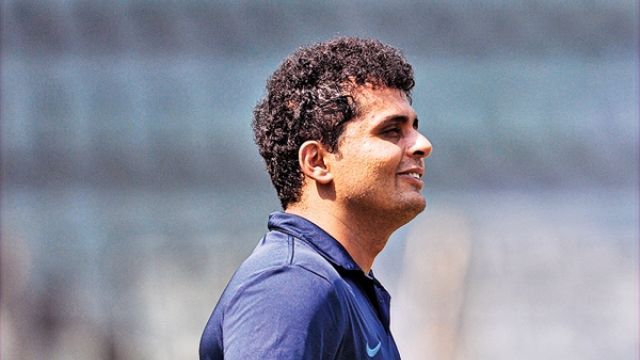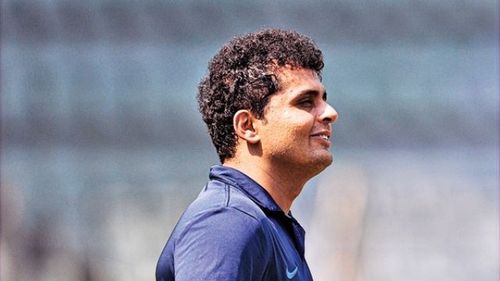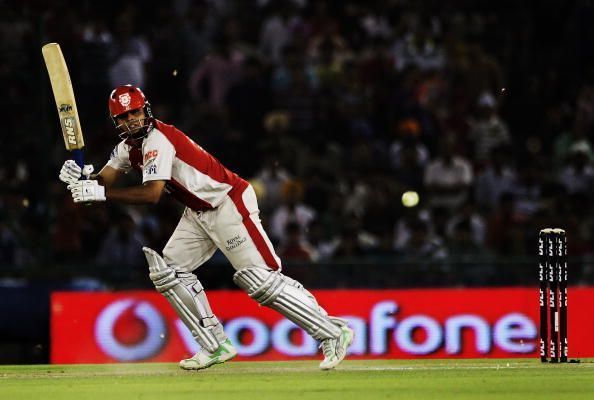
Reetinder Singh Sodhi: The man who could be anything

Eight years before the current messiah of Indian cricket, Virat Kohli won the Under-19 Cricket World Cup for India in 2008, there was another lanky youngster winning the trophy for India in the turn of the new millennium. It was Reetinder Singh Sodhi, the protagonist of this quaint little article. Having restricted the home team Sri Lanka to a paltry 178 in the final, with Sodhi doing his bit with decent bowling figures of none for 26, it was now in the hands of the Indian batsmen to finish the job.
While all the batsmen chipped in with a few runs including the captain Mohammad Kaif scoring 18 and Yuvraj Singh scoring 27, it was the vice captain’s cool knock of 39 not out of 43 deliveries that saw India through. Thus, Reetinder helped his country lift the trophy for the first time in three outings and also winning the Player of the Match trophy in the process, with Yuvraj being adjudged the Player of the Series.
In another world, the hero of the previous paragraph could have gone on to etch his name in the pantheons of world cricket. But truth is stranger than fiction indeed, and hardly anyone seems to remember this blue eyed boy with the turban any more. Touted to become the next Kapil Dev by the self-proclaimed cricket gurus who can even put the Oracles of Delphi to shame, this right-handed batsman and right-arm medium pacer went on to have a short-lived career in the senior team, before gradually vanishing into oblivion.
But let’s not skip that far yet. Rather, let us go back even further to the fall of 1996 when the same youngster was weaving his magic with bat and ball in another tournament.
It was the Lombard Under-15 Challenge Cup, often cited as the Under-15 World Cup in the cricketing articles. The venue was Lord’s and the opponent was Pakistan. Tensions were running high and this time around, Reetinder was the skipper. While Mohammad Kaif also had had a decent tournament with the bat, it was Reetinder who was undoubtedly the star of the final as well as the entire tournament.
He scalped 3 wickets conceding just 34 runs and scored a brilliant 82 not out winning the trophy for India in the final. He was also adjudged the player of the tournament being the 3rd highest run scorer with 236 runs at an average of 59 and the highest wicket-taker with 16 wickets at an average of 12.43. No wonder he soon made his first class debut at the raw age of 16.
Fast forward a few years following the U-19 win in 2000, and Reetinder was selected among the first batch of 24 trainees in the National Cricket Academy in Bangalore (now Bengaluru) which also included Mohammad Kaif, Harbhajan Singh, Murali Karthik and Laxmi Ratan Shukla. This was followed by his debut for the Indian senior team versus Zimbabwe in Cuttack later that year.
India won the match by 3 wickets and Reetinder had a modest game with bowling figures of none for 31 in 8 overs at an economy rate of 3.87, and batting figures of 9 runs in 18 deliveries. The start may not have been perfect, but the Gods had spoken and the gates had opened for Reetinder to carve out a flourishing career in the years to come.
But alas! As the great German philosopher Neitzsche had once said: “In reality, hope is the worst of all evils, because it prolongs man’s torments.” And hope he did, and so did all the fans and cricket experts in the sub-continent. But Reetinder went as he came, in a flash, and was soon away from the field and out of popular media. He went on to play in just 18 ODIs for India scoring 280 runs at an average of 25.45 and taking just 5 wickets at an average of 73.00, albeit at a good economy rate of 4.74.
He played his last ODI for India against West Indies at Jodhpur in 2002, which just like his debut, India won by 3 wickets. Reetinder wasn’t given the bowl and he scored just a single in 3 deliveries before being caught by Jacobs off the bowling of Collymore. Apparently, the guy was lucky for India, but luck and form had both abandoned the man himself. The back injury he had sustained in the nets during the Challenger Series in 2002 turned out to be the death knell for his cricketing career.
There isn’t anything much to write about Reetinder’s career in the succeeding years. He tried to make a couple of comebacks without much success and played his last First Class match in 2007.

He went on to ply his trade in the rebel Indian Cricket League (ICL) where he represented the Ahmedabad Rockets in the 2007 and 2008-09 seasons. He was signed on by Kings XI Punjab in the 2010 season of the Indian Premier League (IPL) but was able to feature in just three matches. His final game was a Twenty20 (T20) match in the Syed Mushtaq Ali Trophy in 2010, where he represented Punjab against Jammu and Kashmir before hanging up his boots and bat for good.
Call it tragic or call it punching above one’s weight, but Reetinder could never achieve the feats he was set out for. Barring a couple of matches here and there, where for a brief moment you could see the spark in his play and imagine what feats this guy could have achieved on the field, Reetinder remained an under-achiever in the long run.
One such match was the Coca-Cola Cup final of 2001 at Harare where he not only scalped 2 wickets conceding just 31 runs in 7 overs, but also scored 67 off 75 deliveries keeping Sameer Dighe company, who in turn ended the match at an unbeaten 94 off 96 deliveries. India lost the match by 16 runs, but who is to say what could have happened if Reetinder and Dighe had been able to see the match through like Yuvraj and Kaif did in the Natwest Series final the following year?
In the years following his retirement, Reetinder went on to don many hats in the form of cricket expert and philanthropist, and also went on to become one of the youngest match referees in the domestic cricket circuit in India. From playing to watching over a game, a lot has indeed happened in the past two decades for a guy once deemed to be the future of Indian cricket.
So in his solitude and back in his room, does he rue his day like the hero of some Sophocles’ tragedy, or does he utter to himself the words from the movie ‘Blow’: “…But I force a smile, knowing that my ambition far exceeded my talent”? Well, only Mr Sodhi knows that.